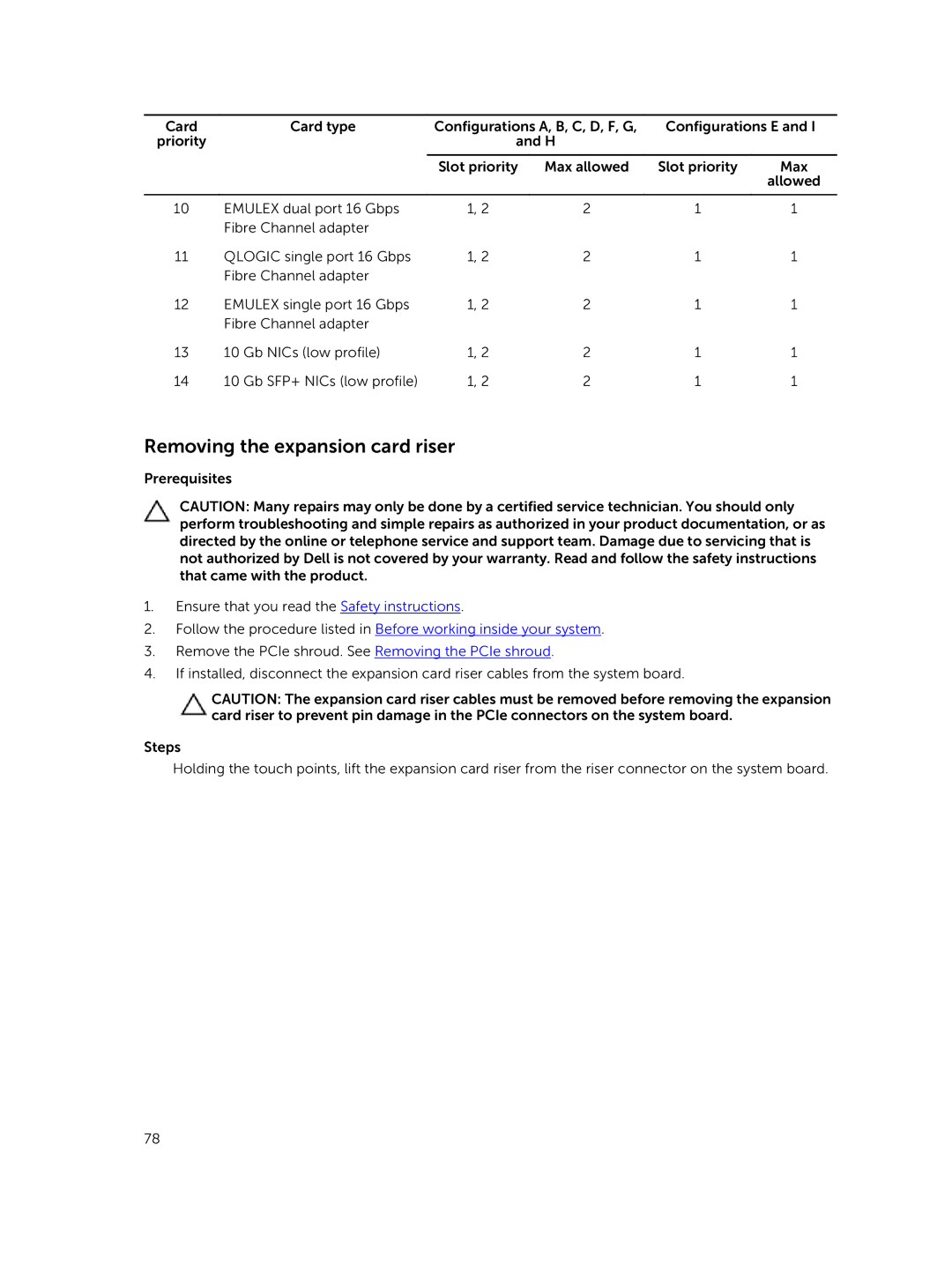
Card | Card type | Configurations A, B, C, D, F, G, | Configurations E and I | ||
priority |
| and H |
|
| |
|
|
|
|
|
|
|
| Slot priority | Max allowed | Slot priority | Max |
|
|
|
|
| allowed |
|
|
|
|
|
|
10 | EMULEX dual port 16 Gbps | 1, 2 | 2 | 1 | 1 |
| Fibre Channel adapter |
|
|
|
|
11 | QLOGIC single port 16 Gbps | 1, 2 | 2 | 1 | 1 |
| Fibre Channel adapter |
|
|
|
|
12 | EMULEX single port 16 Gbps | 1, 2 | 2 | 1 | 1 |
| Fibre Channel adapter |
|
|
|
|
13 | 10 Gb NICs (low profile) | 1, 2 | 2 | 1 | 1 |
14 | 10 Gb SFP+ NICs (low profile) | 1, 2 | 2 | 1 | 1 |
Removing the expansion card riser
Prerequisites
CAUTION: Many repairs may only be done by a certified service technician. You should only perform troubleshooting and simple repairs as authorized in your product documentation, or as directed by the online or telephone service and support team. Damage due to servicing that is not authorized by Dell is not covered by your warranty. Read and follow the safety instructions that came with the product.
1.Ensure that you read the Safety instructions.
2.Follow the procedure listed in Before working inside your system.
3.Remove the PCIe shroud. See Removing the PCIe shroud.
4.If installed, disconnect the expansion card riser cables from the system board.
CAUTION: The expansion card riser cables must be removed before removing the expansion card riser to prevent pin damage in the PCIe connectors on the system board.
Steps
Holding the touch points, lift the expansion card riser from the riser connector on the system board.
78
